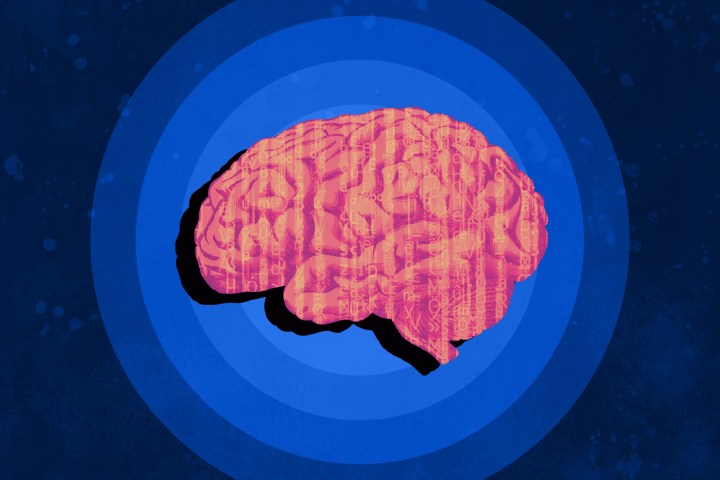
Many futurists have speculated that we may one day be able to scan the human brain and “upload” it to a computer. Some believe this could allow humans to live on after death in digital form, or preserve a copy of yourself that will stick around long after you’re gone. Of course, we’re nowhere near being able to achieve such a feat right now — but what if your brain could be preserved until technology makes brain digitization possible?
That’s exactly what scientist Robert McIntyre is hoping to do. In 2015, he launched a startup called Nectome, aimed at developing brain-preservation technology. Today, that startup has faded from the limelight somewhat, but McIntyre’s dream — preserving human brains so that they might be digitized in the future — is still very much alive. I sat down with him to get an update on the current state of his brain-preservation ambitions.
The conversation did not go as anticipated.
A philosophical turn
Almost immediately, the interview took a philosophical turn. He challenged my opinion that a digital copy of a brain isn’t the same as someone surviving death via uploading.
“The question is, is the way you’re choosing to value yourself or the way you’re choosing to value others. Is that serving you well? Is it useful? Or is it hurting you? Is it not useful?” he asked. “Why do you value one way of arriving at a brain structure and not value another way of arriving at a brain structure?”
“Whenever society develops a mechanism to preserve information and transmit it to the next generation with more fidelity, it’s led to radical shifts in what society is.”
McIntrye argues that even if we never reach a point where consciousness can somehow be transferred onto a computer, a digital copy of your brain is inherently a continuation of your life in a certain way. He says that every choice you’ve ever made influences how your brain became the way it is today, so copying that brain is a continuation of that journey after death.
“If you have a copy of a person, but you’re saying it’s not really continuous with them or real in that way, there’s a certain sense in which it isn’t. Certainly,” McIntyre says. “A copy that’s just been [created] clearly didn’t literally live through the events of that person’s life, because obviously it didn’t. You just assembled it right now. On the other hand, there’s a sense in which it’s absolutely continuous with the person. If that person had different experiences and different memories, then the configuration of the brain of the copy would be different.”

McIntyre frequently compares copying the brain to making a copy of a famous painting. If you were able to make a perfect copy of a famous painting, he asks, why is it less valuable than the famous painting? The reason, of course, is that we tend to value authenticity and its connection to the past —continuity. But McIntyre contends that we choose to value these things, and argues that authenticity is a “collective fiction” that may not be serving us.
If a robot painted a new version of a classic painting using the exact same brush strokes the original painter made, McIntyre says, then it’s essentially like the artist is controlling the robot from beyond the grave. If he or she had made one different motion, then the robot would have to make the same motion.
During the interview, I sometimes got the feeling I was talking to Doctor Manhattan from the Watchmen comics. He clearly doesn’t want to devalue people caring about authenticity and their connections with the past, but he also doesn’t seem to think they’re as important as we make them out to be. He seems to think we could simply do away with those sentimental things and benefit from doing so.
The tricky business of brain preservation
Perhaps partially because of the extremely logical way McIntyre tends to approach things, Nectome was the subject of many scandalous headlines a couple of years ago. The company had come out of the startup accelerator Y Combinator, won a prize from the Brain Preservation Foundation, received support from people at the Massachusetts Institute of Technology, and looked to have a promising future. But after an article from MIT Technology Review in which McIntrye described his brain-preservation process as “100-percent fatal,” and the word “euthanasia” started getting thrown around, folks at MIT and beyond started distancing themselves from the company.
Nectome created a chemical solution that can be injected into the body and essentially turn it into glass so the brain can be scanned and uploaded whenever technology is capable of doing such a thing. This would have to be done while someone is still alive, so the idea was that terminally ill patients could choose to participate in this project at some point. Unsurprisingly, this was seen as a very controversial idea by some. McIntyre largely stepped back from the public view after this controversy, but he later did an interview with STAT to clear things up in 2019.
Randal Koene, a neuroscientist and neuroengineer who co-founded Carboncopies, tells Digital Trends that the people at Nectome didn’t at first have experience in communicating their plans and their methods, which caused them some problems.

“It’s important to focus on communicating scientific advances without conflating that with speculative hypotheses about future medical protocols, especially if those would be based on assumptions about social and regulatory changes that have not yet received attention from experts or been subjected to ethical guidelines,” Koene says. “As for Nectome and its work, I actually have a very positive opinion of that. Robert McIntyre and his colleagues have been meticulous in their studies (which have been through peer review and published). The results, as evaluated by the Brain Preservation Foundation and others, are of exceptionally high quality.”
McIntyre says he understands why people get freaked out when these kinds of topics are discussed, because death is a scary thing. He’s still doing the work he was doing before this controversy, and he truly believes his work could change society forever. As he sees it, preserving and then uploading brains could change how we learn about history, which could change how much we learn from it.
“It will create a whole new history and change society, I think, as profoundly as writing did.”
“The fact of the matter is that currently when you die, all of the information that’s stored in your brain is completely destroyed. That’s how it’s been every generation,” McIntyre says. “It’s also true that whenever society develops a mechanism to preserve information and transmit it to the next generation with more fidelity, it’s led to radical shifts in what society is. In fact, I would say that that is the defining thing that shifts between historical eras. It’s not about the Stone Age or the Iron Age or anything. It’s about information transmission.”
Just as the ability to write, the invention of the printing press, and the other ways we’ve advanced when it comes to transmitting information have changed society, McIntyre believes brain uploading will have profound impacts on humanity. He says we’re a long way from being able to do it, so we should start preserving people’s brains as soon as we can.
“It will create a whole new history and change society, I think, as profoundly as writing did,” McIntyre says. “We’ll then be living in the era of living memory. Humanity won’t really forget things like it does right now.”



